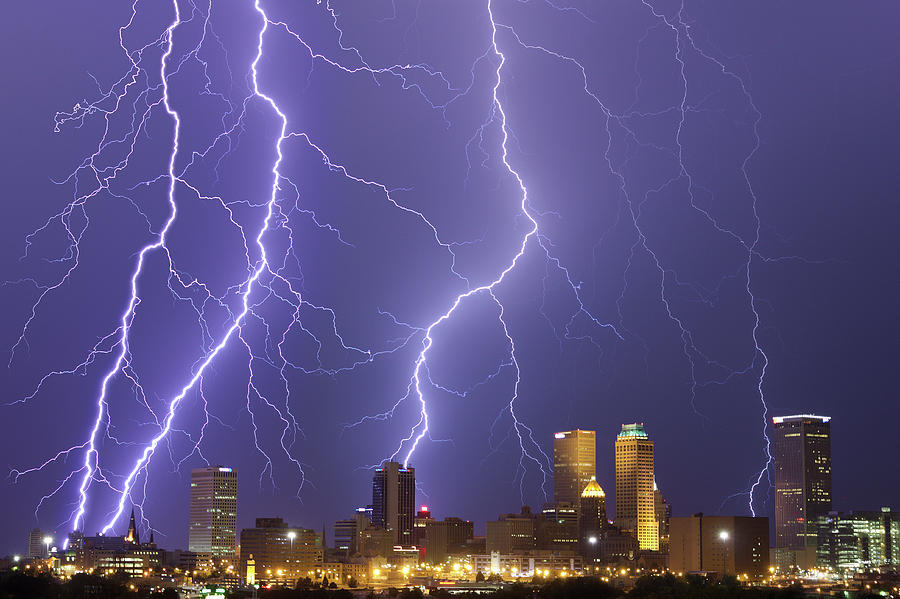wxman57 wrote:Sorry, I was busy with Elsa and I took a few days off after working 12 long days. I've been a meteorologist for going on 42 years now. Back when I graduated in 1980, not many meteorologists were getting advanced degrees. Now, it's nearly a requirement to land a good job. Here are some possibilities I've come across.
Private Weather Companies: They're all over the U.S. I've been working for one since 1980. You would provide forecasts for various industries (utilities, petrochemical, offshore operations, shipping, aviation forecasts). You may provide alerts to client locations about pending severe weather, or you may provide guidance during hurricanes (as I do). Some companies would prefer an advanced degree (MS), but many don't. Can be unstable, in that many small weather companies get sold to larger companies, and you may be out of a job. Hours can be long, and pay at some companies may be low. You'll work shifts - days, swings, nights, all year. You'll work most holidays, as weather is a 24/7/365 job. Some larger companies can be quite controlling, like Accuweather, may require you to sign a non-compete agreement, stating that if you quit then you're not able to be employed as a meteorologist at another company for a period of time (years). I would advise doing your research on any private company. Talk to the employees, if you can.
TV: It's not as much about how good a meteorologist you are as how you look and how you communicate to the general public. You start off in a very small market working the very early shift and weekends. If you're well-liked, then you can move to prime-time and larger markets. Job security is poor. You may be fired by the station manager at any time, particularly if you don't have much experience. This job has the lowest requirements as far as education.
National Weather Service: I applied with the NWS before I graduated. It wasn't easy to get in back in 1980, as most spots were still filled by WW-II vets. Not sure about the degree requirements, but a masters would not hurt. Generally, it's a very secure job. Hard to get fired. You may not get to work in a city you'd prefer, and you may not have a choice in what kind of forecasting you do. NWS jobs are 24/7/365, too.
Local Governments: There are some cities that employ meteorologists in there emergency operations center. In Houston, we have Jeff Lindner, the face of the city during weather events. You'd probably have to know someone to get such a job.
Airlines: Most airlines employ meteorologists to produce TAFs and other aviation forecasts for their primary routes. You might find the work quite boring, but you can fly free if you're employed by an airline.
National Hurricane Center: At the very minimum, you'd need a masters degree. Even then, it's hard to get one of the "good" jobs as a hurricane specialist. You may be stuck analyzing satellite imagery for the hurricane forecasters. It's another secure job, though.
Bottom line is that you need to figure out what kind of forecasting interests you. With some companies you may do all kinds, but with others you may specialize. My team specializes in TC forecasting worldwide. However, during quieter winter months, we take over the forecasting of marine fog that can close a port for a week or more. Not as exciting as a hurricane, but closing a port for days on end can have a huge impact on clients. What kind of forecasting do you see yourself doing at some point?
You may need to take any job offer you get at first, just to gain experience. That's what I did. The company sent me to an offshore platform near the southern tip of Argentina to gather data and attempt to provide forecasts for rig moves. I gained experience as a marine forecaster, forecasting wind and waves for offshore locations. After that, I worked as an aviation meteorologist for about 13 years, eventually advancing to team supervisor. It was nearly 20 years until I got my current position leading a TC team.
Feel free to PM me for contact info and for other questions.
P.S. One more thing - "down the road" rarely arrives. The longer you delay any advanced degree, the harder it will be.
Thank you, wxman57! No worries I understand you were busy. I’ve been to the NWS in Miami as well as NHC down there as well. What really interests me is hurricane specialist but I know I need further education for that. Another that interests me is National Weather Service, being a severe weather forecaster.
I’ve read up about options and what I could do.. I came across some info on perhaps pursuing a Computer Science degree to complement my Met degree. What do you think? Or do you think if I’m going to go back to school, to go straight for a masters?
I did intern at the NHC Library but I didn’t specifically worked meteorology there. It was more using software to gather data and put it together for a bibliography for the storm surge unit. I did have the opportunity to go around the different departments there at the NHC.
Lastly, yes I understand the sooner the better, though like I said working at the NWS, Weather forecast office would be amazing as well. TC forecasting is my number 1 then severe weather comes as a close 2nd. Both very interesting.
Thanks again for the detailed info!
The posts in this forum are NOT official forecast and should not be used as such. They are just the opinion of the poster and may or may not be backed by sound meteorological data. They are NOT endorsed by any professional institution or storm2k.org. For official information, please refer to the NHC and NWS products.






